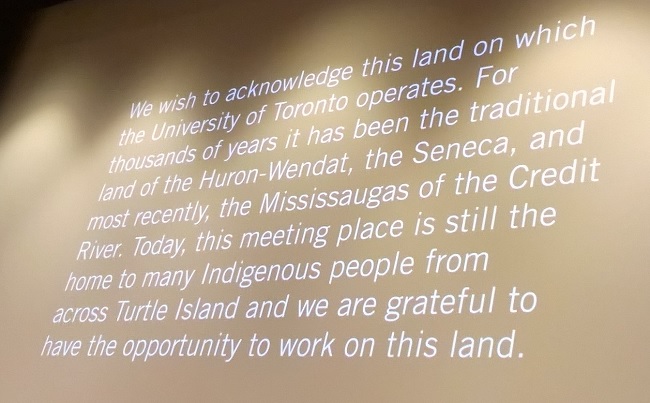Louis Riel the opera revived for Canada 150 celebration
TORONTO—In the late 19th century, Métis leader Louis Riel prophetically proclaimed that “my people will sleep for one hundred years, but when they awake, it will be the artists who give them their spirits back”. He was off by a decade or two, but he and his contemporaries were brought back to life on April 20, through the Canadian Opera Company’s adaptation and revival of Harry Somers’ Louis Riel the opera as part of Canada’s 150 celebration.
Rarely performed since it was first commissioned for Canada’s centennial in 1967, the opera inspires many thought provoking and relevant topics that were discussed during a day-long symposium about the opera the following day on April 21. Attendees were addressed by dignitaries, creative staff behind the opera, authors, academics, and even a Riel relative.
At the heart of most Riel conversations is whether you see him as a traitor or a hero.
Speaking at the symposium, Chief Justice of Canada Beverly McLachlin opined Riel was a man of a “trans-sectional identity” and a victim of the conflict at the time that was coming out between the Anglophones, Francophones, and Indigenous people.
Recently, there has been talk of exonerating Riel; however, his great-grandniece Jean Teillet views this as “tokenism—the government pardoning itself” and is not in favour of doing so.
One of the points raised is that Canada 150 isn’t celebratory for all, including some Indigenous groups.
“Canada came into the west joining a preexisting democracy the Indigenous had in place for a long time,” stated Adam Gaudry, University of Alberta professor of Native Studies.
In conversation, former Governor General Adrienne Clarkson referred to it as “the celebration of an infrastructure” and likened it to that of a building, “congratulations your walls are still standing.”
Author John Ralston Saul declared the government would do well to “save money on fireworks and have a year of difficult conversations” on Indigenous relations especially truth and reconciliation.
The subject of mixing Indigenous culture and western art made for a lively round-table discussion between the creative minds behind the revival of Louis Riel the opera, including Director Peter Hinton and his collaborators Estelle Shook, Marie Clements, and Paula Danckert.
“What is more western-centric than opera?” asks Dramaturg Paula Danckert. “How this content meets this forum continues to be an issue for us.”
An example of the issue that Denckert refers to is the use of sacred songs in the show; it was difficult, especially the subject of ownership.
“Because you aren’t coming to it in the same spirit, because of the charge for admission,” Director Hinton believes.
Indigenous performer Joanna Burt entertained the audience by performing the Kuyas or lullaby her character Sara Riel sings at the beginning of Act Three.
“Production was to treat it as an artifact to cast light on its biases,” expressed Hinton regarding his intent with the production. “[It is]] always better to include other points of view.”
This is achieved by having Indigenous actors portray a land assembly.
Assistant director Estelle Shook sees that as “a way to include a community that wasn’t included in the creation. They bring a sense of gravitas to the show.”
Although not part of the round-table discussion, speaker Professor Adam Gaudry emphasized that it is important to “ensure that Indigenous artists are the one’s telling the stories, and support the development of Indigenous artists so that this is normalized.”
On the horizon is Hinton and his team—some of whom have Métis heritage—are working on an original work for the City Opera of Vancouver called Missing, dealing with the very prevalent topic of the Missing and Murdered Indigenous Women.
Todd Ross, Chair of the Toronto and York Region Métis Council, was the final speaker and concluded the day by commenting that “the story of Métis in Ontario isn’t told often and we are just beginning to talk about it.”
There is definitely room for more First Nations subject matter out there; hopefully from now until the conclusion of its run on May 13, Louis Riel the opera has the opportunity to continue to inspire conversation among its viewers.



